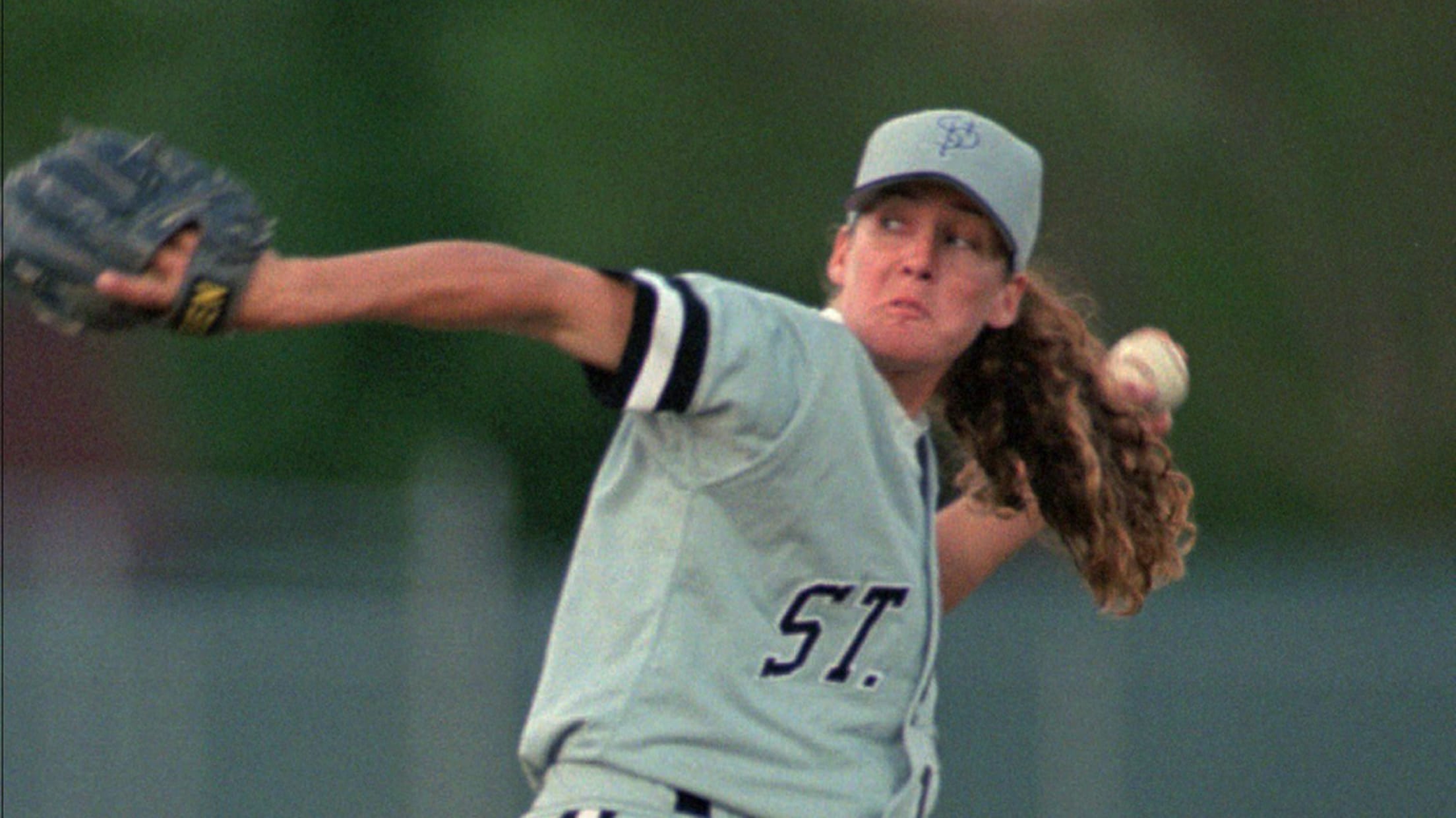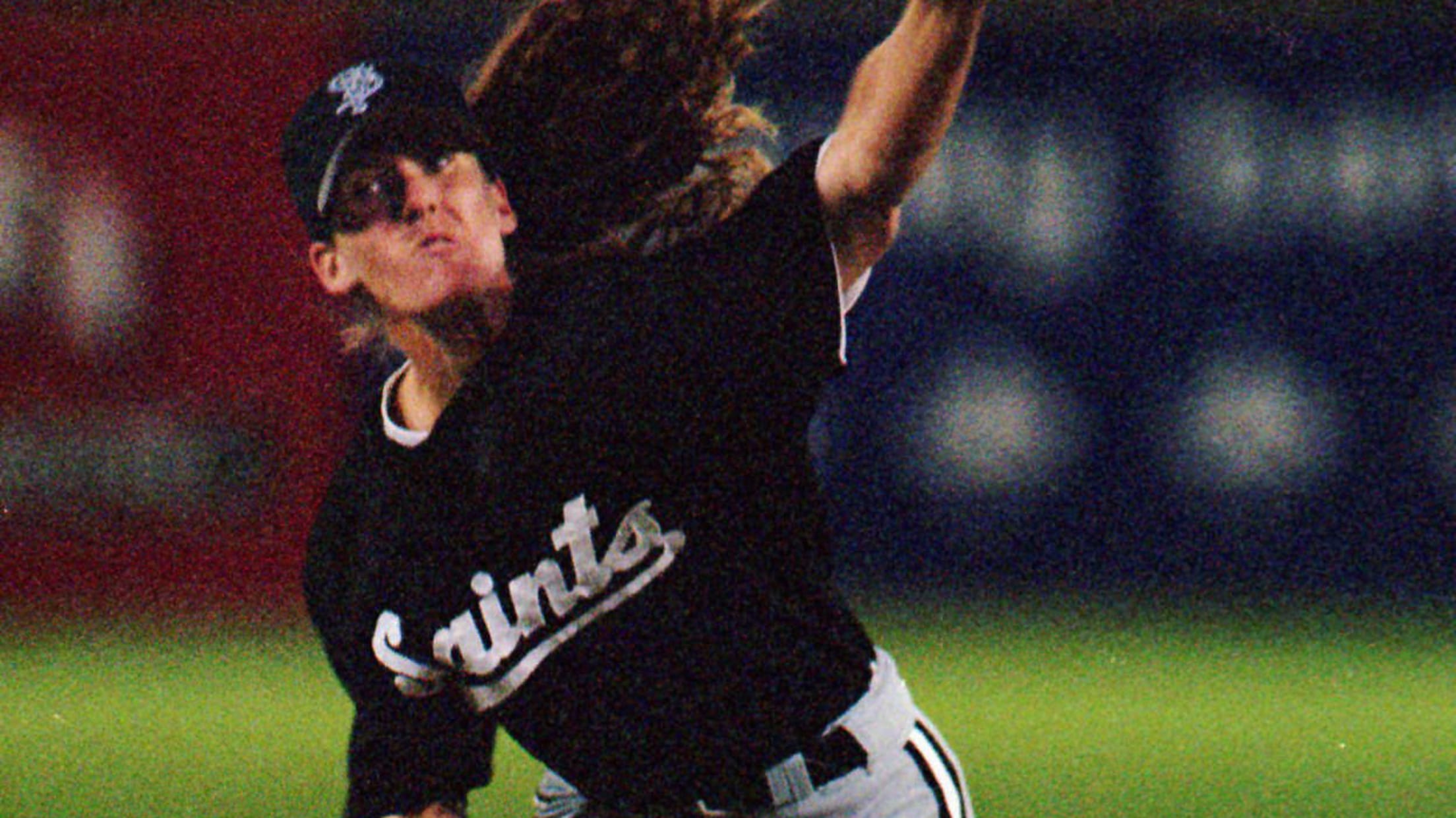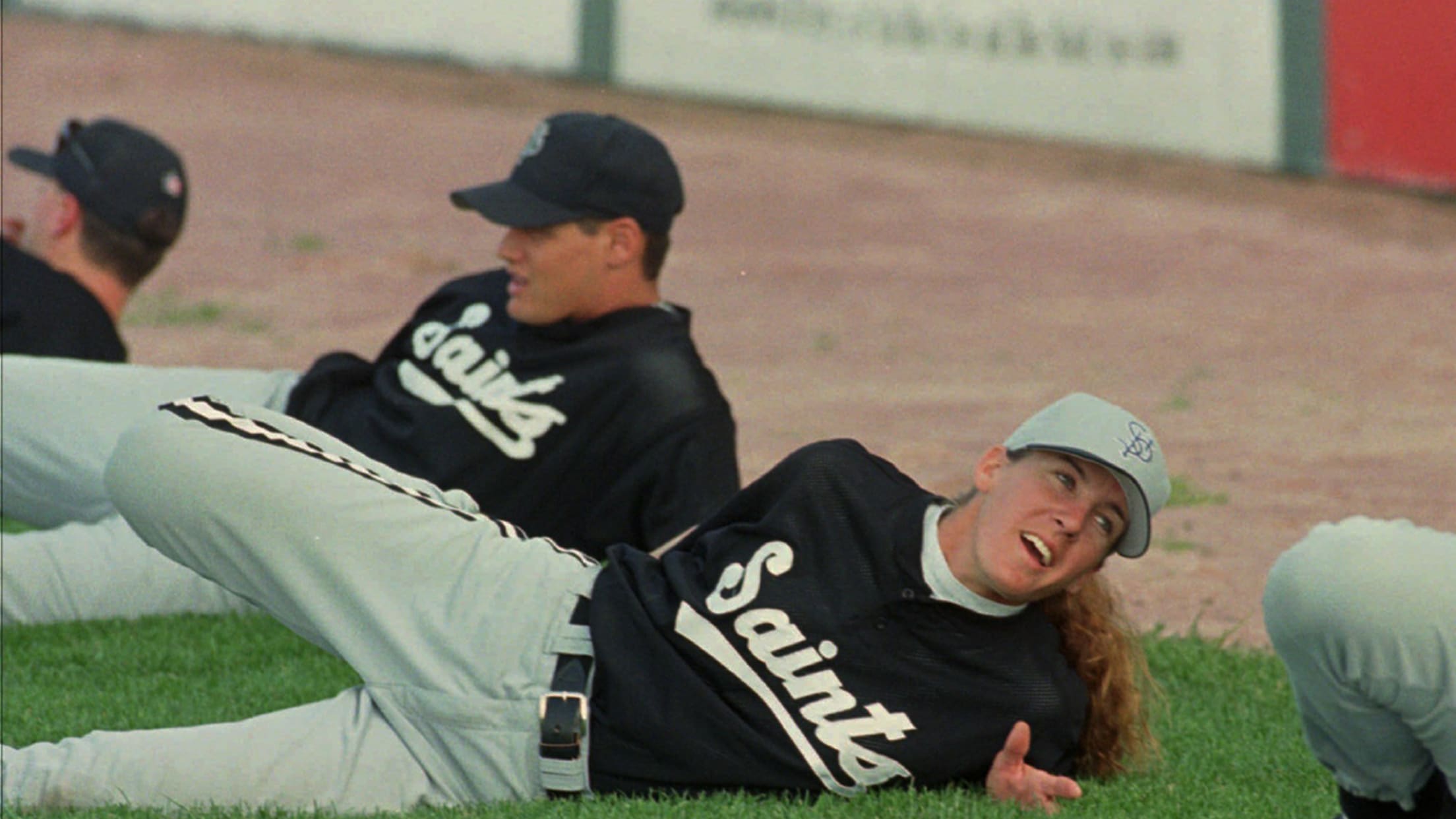Let's catch up with Ila Borders, the first woman to win a men's professional baseball game

The following is a transcript of a segment from this week's episode of the Cut4Cast podcast. To hear more of the Cut4 staff's weekly banterings about which position player is the best at pitching or how baseball would work in outer space, subscribe to the Cut4Cast by clicking here.
In this week's edition, Gemma Kaneko talks with Ila Borders, whose memoir, "Making My Pitch," was released earlier this year. In 1994, Borders became the first woman to win an NAIA or NCAA men's baseball game, and in 1998, she became the first woman to get a win in a men's professional baseball game.
Gemma Kaneko: What was the most difficult at-bat that you can remember? Who was the toughest batter to face?
Ila Borders: Oh, gosh. I would say, if I had a -- I'd say J.D. Drew. He was on my team for a little bit, the Saints, and then I faced him. The toughest [thing] to me -- I think if you ask any pitcher -- is getting that third strike. I mean, you can get two strikes, but you're throwing everything at them, and they're fouling it off, fouling it off, fouling it off. Like, "Oh my gosh. Whatever I give them, they're just fouling it off." And finally, not that you have to give in, they're just waiting for a mistake. And your good pitches, they foul off. He was very difficult to pitch to, and I found him to be the toughest person that I faced.
Gemma: What's it like when you're trying to work a new pitch into your arsenal?
Ila: I wish I could learn something fast. What I've learned is it takes a long time. Talking to my baseball friends, they're like: "Why does it take -- you know, this guy said that he's just starting a split-finger, and he's been working on it a year and a half?" And I'm like: "Yeah, it took me a long time to develop my straight change that kind of worked as a screwball."
And you work on different speeds. You work on different spin. Then you have to control it and place it, and it just takes a really long time. If I didn't have that screwball that was a straight change, I would not have made it in professional baseball. And so it took me some time in college to perfect that.

Gemma: We had a guest earlier in the year. Her name is Debbie Shattuck, and she wrote a book called "Bloomer Girls," which is about women's baseball in the 19th and early 20th century, and something she said to me that really struck me was that every time a woman starts to play baseball in the 20th century, everyone acts like it's the first time.
That's something that I noticed with the way you interacted with the media [during your career] -- they all put all this weight on you. You are the person who has to carry this banner. It's only you; you and you alone. And you, yourself, note that you were not the first woman to play men's professional baseball, but nevertheless, you were given this burden. Was it a burden to you at all? How did you feel about that?
Ila: See, it was never about being the first. In my mind, you can go be the first. I want to be the best of the best. I want to be the best ever. That was my goal. I wanted to play professional baseball. I wanted to show that I was legit.

I didn't play just two weeks. I played four years, and I got a win. I got a scholarship to play baseball in college, and it paid for my education. I wanted to show that I love the game and I have an opportunity to possibly make it to the Major Leagues, and I wanted to be the absolute best.
It wasn't about being the first, even though they would put that [on me]. There are three women in the Negro Leagues who played professional baseball before I did. And then Julie Croteau, she was the first woman to play college baseball, but I was the first one to pitch and win in college and get a scholarship. So you have all these different things, but my main thing out there was that I wanted to be the best of the best.
Gemma: What advice do you have now for young women who are also stepping into men's professional baseball?
Ila: Mo'ne Davis, I think, brought tons of great exposure to women playing baseball, and the more that can happen like that, that is fantastic.
But yeah, I was watching that, and I thought: "Oh my God, when I was playing Little League, there was a girl that played first base and they were in the World Series. You know, this is such a big deal," but I remember her being the first girl to play in the World Series.
The [Sonoma] Stompers, I actually talked to one of them, same thing; awesome. I'm so excited for them to get opportunities.
Here's a look at Kelsie Whitmore's first hit as a professional. #history #trailblazer pic.twitter.com/tMg9FhJ0ai
— Sonoma Stompers (@SonomaStompers) July 20, 2016
But yeah, there's women that played in the Negro Leagues. I played four years and then they were saying this is the first again. And, it's like, no. This is available. This has happened before. I think what needs to change, though, is people -- and this is going to take time -- as soon as girls get to 12 or 13, they go into softball.
Now, if they want to go into softball, then that's fantastic. There's a lot of great softball players and it's a great sport. But I don't like that they're being pushed into softball because there's no baseball outlet for them. And I'm trying to get my book out there to girls to say: "Hey, wait a second. You don't need to be pushed into baseball. I played high school baseball with the guys four years. I got my college education paid for with baseball, and then I played pro ball."
I don't think a lot of people know that there are opportunities out there. It will be an extremely tough road, but it's available. And if we can give more outlets to women to keep on developing the baseball skills -- I mean you can't go into softball at 13 and then turn 20, or you're out of college and then you try to go play pro baseball. They're two completely different sports, even though they have a lot of similarities, and that's why I'm really excited Major League Baseball and USA Baseball is putting together a Trailblazer Series in Compton, California for 16-and-under and 12-and-under girls to develop their baseball skills. I'm so excited to be a part of that.
To hear more stories about Borders' adventures in professional baseball, listen to the Cut4Cast here.





